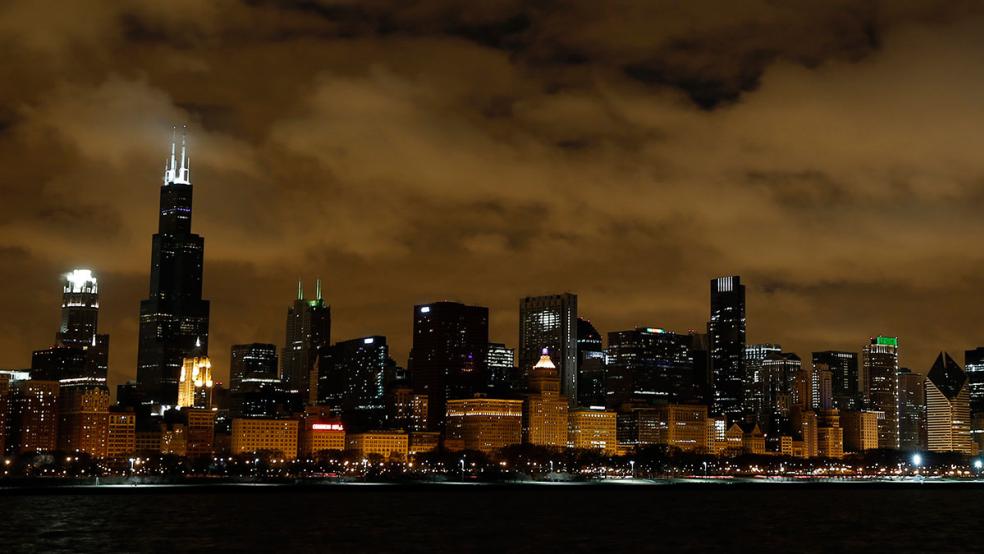When it comes to fiscal discipline, there is no state in sorrier shape than Illinois.
For years, the Land of Lincoln has led the nation in state budget shortfalls, pension fund crises and unpaid bills to public universities, schools, social service agencies, druggists and vendors.
Back in January 2011, then-Democratic Governor Pat Quinn and the Democratic-controlled state legislature rushed to enact a major tax increase to address a looming budget deficit of at least $12 billion – about a third of the $35 billion general fund budget. At the same time, the state employee pension fund was underfunded by $80 billion to $90 billion, and the state’s once sterling credit rating was in rapid decline.
Related: Illinois Is Not Alone: States Facing $1 Trillion Pension Shortfall
It was arguably the worst state budget crisis in the country, and it proved to have dire political consequences for Quinn. The Democratic governor was ousted in 2014 by wealthy Republican businessman Bruce Rauner, who plowed at least $20 million into his own campaign as he relentlessly branded Quinn’s six years in office as a “failure,” especially his stewardship of the budget, taxes and education.
Rauner boasted of his shrewd acumen as a businessman and investor, and vowed to apply his business sense and instincts to running the state government.
Fast forward to this week, and little has changed – other than the budget crisis may have grown even worse than before and a Republican rather than a Democrat sits in the governor’s office. After nearly a year of wrangling between the Democratic controlled legislature and Rauner, state lawmakers adjourned late Tuesday leaving Illinois with the dubious distinction of being the only state in the country without a spending plan for the remainder of the current fiscal year or for fiscal year 2017.
Illinois is an outlier nationally, since most other states have found ways to control spending and adhere to constitutional requirements to balance their annual budgets (although they sometimes rely on accounting gimmicks). According to a recent study by the Pew Charitable Trusts, states’ fiscal conditions have improved since the Great Recession ended six years ago, though their recovery is incomplete. However, more than 20 states (including Illinois) still collect less tax revenue than at their recession-era peaks, after adjusting for inflation, “and most have yet to rebuild their financial cushions to prerecession levels,” according to the study. Twenty-three states’ employment rates still trail 2007 levels.
Related: States Keep Using Gimmicks to ‘Balance’ Their Budgets
A comparison of each state’s tax receipts in the second quarter of 2015 with its peak quarter of revenue before the end of the recession showed a number of states -- including Minnesota, New Hampshire, Pennsylvania, North Dakota, Montana and Iowa -- in which tax revenue has recovered. Illinois for a while showed a rebound in tax revenues, following the legislature’s approval of substantial temporary tax increases. But Illinois has fallen back since the January 2015 expiration of those temporary tax hikes.
Illinois lawmakers and the governor staggered through much of the current fiscal year without completing a budget, while operating under court-ordered spending and stopgap spending measures. This is not unlike the situation in Congress, where Republicans and Democrats rarely can agree on a comprehensive budget plan and keep the government operating through a series of short-term continuing resolutions.
With no progress toward an agreement, the state withheld or cut back on payments to government contractors and vendors, social service providers, state community colleges and university and others. Without adequate government spending to assist the poor and unemployed, many Illinois residents will have to cut back on food, utilities and other essentials, according to some Democrats.
"Real people are going to suffer. Real people are going to die," Democratic State Representative Jack Franks of Woodstock, Ill., warned yesterday.
Related: Anti-Tax GOP Governors Find It Hard to Hold the Line
Illinois already has the lowest bond ratings among the 50 states. Without a new, balanced budget, it risks tarnishing its credit rating even more. Credit rating agencies have warned of further downgrades unless state officials manage to reduce a $111-billion unfunded pension liability and a massive structural budget deficit, according to the Associated Press.
For sure, there is plenty of blame to go around. While they complain about the governor, leaders of the Democratic controlled House and Senate have been feuding among themselves over spending levels and revenues. A House-passed budget that Rauner vowed to veto because it was more than $7 billion short on revenue was soundly defeated by the Senate this week. But Rauner has been obstinate as well, and has roiled the waters since taking office with his demands for making the state more economically competitive.
He is calling for measures to curb government union collective bargaining powers, reduce spending on state employees’ salaries and benefits and reduce the cost to businesses of worker compensation insurance.
Shortly before the legislative session came to an unhappy close late yesterday, Rauner denounced Democrats for their "stunning failure" on the budget front.
"We're like a banana republic. We can't manage our money," he said at a news conference.





